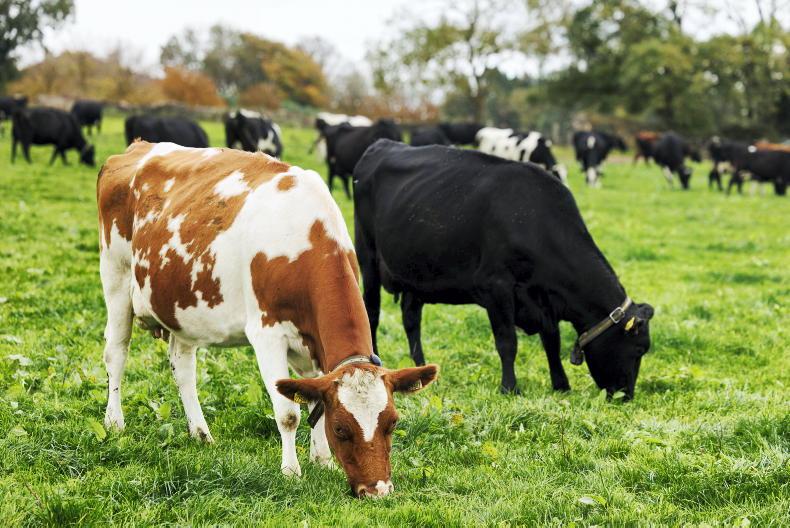There is huge concern across Europe that the differential experience of the COVID-19 lockdown and more importantly the recovery post-lockdown will not just be felt in different sectors but very markedly in different economies.
The prospect of this is exposing the very concept of a union across Europe and at the very least could undermine the euro if not the whole EU structure. Indeed just last week, the European Commission projected that Europe’s economy will shrink by 7.4% this year. By comparison, the 27-nation bloc’s economy shrank by 4.5% in 2009, during the global financial crisis. And just three months ago, its economy was predicted to grow by 1.2% this year.
The economies of Italy and Spain, two of the countries hardest hit by the coronavirus, will most likely contract by over 9% this year, while Greece, which had started turning a corner after a decade of economic calamity, is expected to be worst hit, shrinking 9.7%. Poland would suffer the least, with a 4.5% contraction.
Ireland's dubious GDP accounting means that a 6% decline in GDP is definitely an underestimation.
The range in the forecasts of economic impact as set out by the ECB, sees the German economy forecast to decline by 6.5% in 2020 (GDP) and recover by 5.7% in 2021.
Unfair policies
This differential impact is not simply related to the difference in the impact of the COVID-19 pandemic across member states or even the importance of tourism in the different economies or a different industrial vs services mix across different economies. Very clearly the different rates of decline and recovery will be hugely impacted by historical policies like the stability and growth pact which dictated, very unfairly, how the huge deficits caused by the increased borrowings required to recover from the COVID-19 economic shock can be financed.
German position
The behaviour of Germany in this context is interesting to say the least. Germany is refusing COVID-19 bonds or any other measure that would see the debts incurred in rebooting economies being shared across the EU/Eurozone. And this was even before the recent action by the German supreme court suggesting that because Germany constitutes 45% of the ECB, German laws can inhibit the types of supports the ECB can fund and in particular, mutual debts like the COVID-19 bonds sought by the ECB and other member states.
Yet Germany was quickest off the mark on state aid derogations and has introduced the biggest and most costly number of state aid schemes and supports.
The German model of introducing overwhelming government supports is showing up as best in class. Just how broad and expensive the German state aid supports are is outlined in EU website, which has rubberstamped all of the measures introduced by EU member states since the middle of March. In many respects, the German approach marks the effective end to state aid rules, whether the EU Commission likes it or not.
Germany's COVID-19 supports:
• A German “umbrella” scheme supporting:
(i) Coronavirus relevant research and development (R&D) activities.
(ii) Investments in testing and upscaling infrastructures that contribute to developing coronavirus relevant medicinal products.
(iii) Investment in production facilities for medicinal products needed to respond to the outbreak.
The scheme approved by the European Comission includes:
A €550 million public loan in favour of German charter airline Condor. A guarantee scheme to support the trade credit insurance market in the face of the coronavirus outbreak. Trade credit insurance protects companies supplying goods and services against the risk of non-payment by their clients.Amendments to two German schemes to support companies affected by the coronavirus outbreak. Guarantees can cover 100% of the risk of loans with a nominal amount of up to €800,000. German promotional bank Kreditanstalt für Wiederaufbau to provide liquidity in the form of subsidised loans to companies affected by the coronavirus outbreak, in close co-operation with commercial banks. A scheme to support companies affected by the coronavirus outbreak. The aid under the "Bundesregelung Kleinbeihilfen 2020” scheme takes the form of direct grants, repayable advance or tax and payment advantages.A scheme to enable the granting of loan guarantees at favourable terms to help businesses cover immediate working capital and investment needs.
A state aid scheme extending measures adopted on 22 March 2020 to support the economy in the context of the coronavirus outbreak. In particular, the extension enables support to be granted by other regional authorities and promotional banks not covered by the existing measures. This new scheme is open to all companies of the real economy and enables the granting of loans at favourable terms to help businesses cover immediate working capital and investment needs. Germany has put the house on German economic recovery, but is at best ambivalent about the rest of the union.
Very clearly Irish food companies wishing to secure trading opportunities post-lockdown must not be disadvantaged compared to competitor countries across the EU
Unlike after the 2008 recession, Ireland goes into the current recession in a favourable position from a borrowing perspective. Through the National Treasury Management Agency (NTMA), the State has the capacity to borrow up to €30bn at favourable rates and clearly can do more.
In the context of the overarching EU debate, Ireland is clearly supporting other euro states in looking for a pan-European approach to the pandemic. Ireland should also introduce immediately state aid supports such as trade credit insurance similar to which Germany introduced at the end of March and which has now been copied by Denmark, Belgium, France and the Netherlands.
Very clearly Irish food companies wishing to secure trading opportunities post-lockdown must not be disadvantaged compared to competitor countries across the EU who have taken advantage of the Commission guidance on trade credit and introduced state-backed schemes.
Brexit exposure
I would also argue that in the context of real solidarity, now is the time for Ireland to share its exposure to both Brexit (which hasn’t gone away) and sterling devaluations which specifically impact the Irish economy, but for which meaningful state aid supports have been blocked in the past.
Sterling devaluation for instance seems imminent given that the UK economy is slated to decline by 22% in the second quarter of 2020, according to the Bank of England. A severe fall in the value of sterling against the euro is very capable of unhinging any recovery in the Irish economy post-COVID-19.
In truth, the Irish Government would also be best served by ruthlessly following Ireland's own key economic interests – à la Germany – especially as state aid is a national competence. The new factor here must be the realisation that our low corporation tax and foreign direct investment isn’t our only key economic interest. Economics is about balances, not moral lectures.
The fact is that the northern European/German prejudices against true economic union hide a huge economic fact which is that through the euro, the German and Netherlands economies have avoided currency revaluations of up to 20% versus a properly functioning currency system.
International Monetary Fund (IMF) data suggests that at the euro’s inception, currency distortion gave German industry a 6% competitive advantage compared with the country’s economic fundamentals and that this has increased to almost 20% in recent years. In monetary terms, Germany gained almost €1.9 trillion between 1999 and 2017 as a result of the euro's introduction, according to a report by the Centre for European Policy (CEP) in 2018. This artificial/contrived competitiveness means that the rest of the EU is directly subsidising economic activity in the trade surplus regions of northern Europe to the tune of several hundred billion euro annually.
In essence, a commitment to COVID-19/mutual bonds is a very cheap price to pay for this loophole in the EU single market and state aid rules.
Read more
New government must embrace Irish agriculture
There is huge concern across Europe that the differential experience of the COVID-19 lockdown and more importantly the recovery post-lockdown will not just be felt in different sectors but very markedly in different economies.
The prospect of this is exposing the very concept of a union across Europe and at the very least could undermine the euro if not the whole EU structure. Indeed just last week, the European Commission projected that Europe’s economy will shrink by 7.4% this year. By comparison, the 27-nation bloc’s economy shrank by 4.5% in 2009, during the global financial crisis. And just three months ago, its economy was predicted to grow by 1.2% this year.
The economies of Italy and Spain, two of the countries hardest hit by the coronavirus, will most likely contract by over 9% this year, while Greece, which had started turning a corner after a decade of economic calamity, is expected to be worst hit, shrinking 9.7%. Poland would suffer the least, with a 4.5% contraction.
Ireland's dubious GDP accounting means that a 6% decline in GDP is definitely an underestimation.
The range in the forecasts of economic impact as set out by the ECB, sees the German economy forecast to decline by 6.5% in 2020 (GDP) and recover by 5.7% in 2021.
Unfair policies
This differential impact is not simply related to the difference in the impact of the COVID-19 pandemic across member states or even the importance of tourism in the different economies or a different industrial vs services mix across different economies. Very clearly the different rates of decline and recovery will be hugely impacted by historical policies like the stability and growth pact which dictated, very unfairly, how the huge deficits caused by the increased borrowings required to recover from the COVID-19 economic shock can be financed.
German position
The behaviour of Germany in this context is interesting to say the least. Germany is refusing COVID-19 bonds or any other measure that would see the debts incurred in rebooting economies being shared across the EU/Eurozone. And this was even before the recent action by the German supreme court suggesting that because Germany constitutes 45% of the ECB, German laws can inhibit the types of supports the ECB can fund and in particular, mutual debts like the COVID-19 bonds sought by the ECB and other member states.
Yet Germany was quickest off the mark on state aid derogations and has introduced the biggest and most costly number of state aid schemes and supports.
The German model of introducing overwhelming government supports is showing up as best in class. Just how broad and expensive the German state aid supports are is outlined in EU website, which has rubberstamped all of the measures introduced by EU member states since the middle of March. In many respects, the German approach marks the effective end to state aid rules, whether the EU Commission likes it or not.
Germany's COVID-19 supports:
• A German “umbrella” scheme supporting:
(i) Coronavirus relevant research and development (R&D) activities.
(ii) Investments in testing and upscaling infrastructures that contribute to developing coronavirus relevant medicinal products.
(iii) Investment in production facilities for medicinal products needed to respond to the outbreak.
The scheme approved by the European Comission includes:
A €550 million public loan in favour of German charter airline Condor. A guarantee scheme to support the trade credit insurance market in the face of the coronavirus outbreak. Trade credit insurance protects companies supplying goods and services against the risk of non-payment by their clients.Amendments to two German schemes to support companies affected by the coronavirus outbreak. Guarantees can cover 100% of the risk of loans with a nominal amount of up to €800,000. German promotional bank Kreditanstalt für Wiederaufbau to provide liquidity in the form of subsidised loans to companies affected by the coronavirus outbreak, in close co-operation with commercial banks. A scheme to support companies affected by the coronavirus outbreak. The aid under the "Bundesregelung Kleinbeihilfen 2020” scheme takes the form of direct grants, repayable advance or tax and payment advantages.A scheme to enable the granting of loan guarantees at favourable terms to help businesses cover immediate working capital and investment needs.
A state aid scheme extending measures adopted on 22 March 2020 to support the economy in the context of the coronavirus outbreak. In particular, the extension enables support to be granted by other regional authorities and promotional banks not covered by the existing measures. This new scheme is open to all companies of the real economy and enables the granting of loans at favourable terms to help businesses cover immediate working capital and investment needs. Germany has put the house on German economic recovery, but is at best ambivalent about the rest of the union.
Very clearly Irish food companies wishing to secure trading opportunities post-lockdown must not be disadvantaged compared to competitor countries across the EU
Unlike after the 2008 recession, Ireland goes into the current recession in a favourable position from a borrowing perspective. Through the National Treasury Management Agency (NTMA), the State has the capacity to borrow up to €30bn at favourable rates and clearly can do more.
In the context of the overarching EU debate, Ireland is clearly supporting other euro states in looking for a pan-European approach to the pandemic. Ireland should also introduce immediately state aid supports such as trade credit insurance similar to which Germany introduced at the end of March and which has now been copied by Denmark, Belgium, France and the Netherlands.
Very clearly Irish food companies wishing to secure trading opportunities post-lockdown must not be disadvantaged compared to competitor countries across the EU who have taken advantage of the Commission guidance on trade credit and introduced state-backed schemes.
Brexit exposure
I would also argue that in the context of real solidarity, now is the time for Ireland to share its exposure to both Brexit (which hasn’t gone away) and sterling devaluations which specifically impact the Irish economy, but for which meaningful state aid supports have been blocked in the past.
Sterling devaluation for instance seems imminent given that the UK economy is slated to decline by 22% in the second quarter of 2020, according to the Bank of England. A severe fall in the value of sterling against the euro is very capable of unhinging any recovery in the Irish economy post-COVID-19.
In truth, the Irish Government would also be best served by ruthlessly following Ireland's own key economic interests – à la Germany – especially as state aid is a national competence. The new factor here must be the realisation that our low corporation tax and foreign direct investment isn’t our only key economic interest. Economics is about balances, not moral lectures.
The fact is that the northern European/German prejudices against true economic union hide a huge economic fact which is that through the euro, the German and Netherlands economies have avoided currency revaluations of up to 20% versus a properly functioning currency system.
International Monetary Fund (IMF) data suggests that at the euro’s inception, currency distortion gave German industry a 6% competitive advantage compared with the country’s economic fundamentals and that this has increased to almost 20% in recent years. In monetary terms, Germany gained almost €1.9 trillion between 1999 and 2017 as a result of the euro's introduction, according to a report by the Centre for European Policy (CEP) in 2018. This artificial/contrived competitiveness means that the rest of the EU is directly subsidising economic activity in the trade surplus regions of northern Europe to the tune of several hundred billion euro annually.
In essence, a commitment to COVID-19/mutual bonds is a very cheap price to pay for this loophole in the EU single market and state aid rules.
Read more
New government must embrace Irish agriculture










SHARING OPTIONS